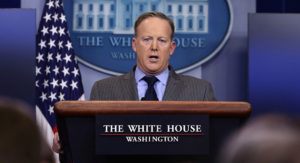It’s an old trope to cast feminists as ugly. The following inference seems to be either a direct ad hominem or a kind of debunking strategy on their claims. The direct ad hominem runs as follows:
S is ugly
Therefore, the things S says aren’t worth our time
Notice that the direct argument has application to anyone, regardless of gender or politics. The debunking argument works as a kind of explanation for the things S says — essentially, that they don’t track truths, but are mere expressions of resentment. The debunking argument, importantly, is uniquely targeting women who are feminists.
S is an ugly woman
Ugly woman have little chance with men
This causes them to be resentful
Out of resentment, they emote using terms like ‘patriarchy’ and ‘misogyny’.
Therefore, the things S says amount to mere emoting
The first form is a pretty clear error in relevance, the second is actually an instance of exactly the kind of sexist attitudes S’s feminism was criticizing.  But, hey, so it goes for those who rely on the ad hominem for their argumentative strategies — they hardly recognize when their use of it exemplifies precisely what the problem challenged is.  It seems to be in higher relief, though, with these cases applied to feminists.
Enter James Delingpole, over at Breitbart. In some ways, I expect he’s just trolling (it’s a modified version of Poe’s Law — with right wing pigeons, you can’t tell whether they are serious, someone else lampooning them, or them embracing their worst sides just to get a rise out of you). But, if the Poe point is right, who knows? In response to the Women’s Marches this last Sunday, he tweets:
 Sheesh. That’s just silly. Not just because folks were coming from well beyond DC. But here’s where things get bad, because Delingpole follows up the tweet with his article, and he puts a little edge on the issue. Ad hominem edge, that is.
Sheesh. That’s just silly. Not just because folks were coming from well beyond DC. But here’s where things get bad, because Delingpole follows up the tweet with his article, and he puts a little edge on the issue. Ad hominem edge, that is.
But this is self-evidently impossible. Very few of these shrieking munters – save the token celebrities – will ever find themselves in a position where they are able to fetch a man’s beer from his fridge because first they would have to find a man willing to share the same space with them.
Yep. That’s what he wrote. And the lesson he takes from it is that these folks are representative of what a Clinton Presidency would have looked like.
I think we owe those women who took to the streets across the world in their various pod groups a massive favour. They have reminded us what a Hillary presidency would have looked like every single day for at least four years.
Again, what’s it look like?
… the usual ragbag of leftist suspects, far too many of them blue hair, their whale-like physiques and terrifying camel-toes the size of the Grand Canyon.
Holy crap. Let me take a breath here. Does Breitbart have an editor over there?
The point I want to highlight how the use of one version of the ad hominem on feminists is a perfect picture of exactly the problem that feminists are out to address. I think the only way someone could make this error so consistently is unless either (a) the person is trollling and is doing it intentionally for the sake of irritating a political opponent, (b) the person really doesn’t hear the critique as a critique, but, per the argument, just as empty emoting. Either way, it’s an argumentative failure. But, perhaps more importantly, a moral one, too.
 Talisse and I have a short piece over at 3QuarksDaily on the heat/light ratio in the ‘Alternative Facts’ reaction.  In many ways, it’s a follow-up to John’s earlier observation that Conway, on a more charitable interpretation, should have used a term like ‘rebutting’ or ‘complicating’ facts, since she’s talking about the evidence for the attendance claims.
Talisse and I have a short piece over at 3QuarksDaily on the heat/light ratio in the ‘Alternative Facts’ reaction.  In many ways, it’s a follow-up to John’s earlier observation that Conway, on a more charitable interpretation, should have used a term like ‘rebutting’ or ‘complicating’ facts, since she’s talking about the evidence for the attendance claims.




